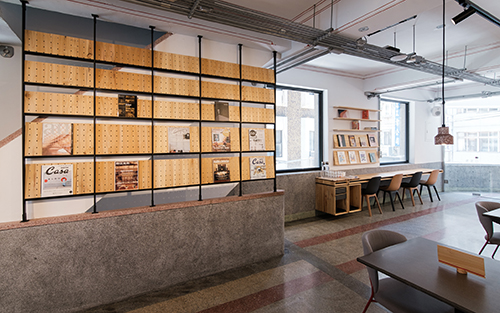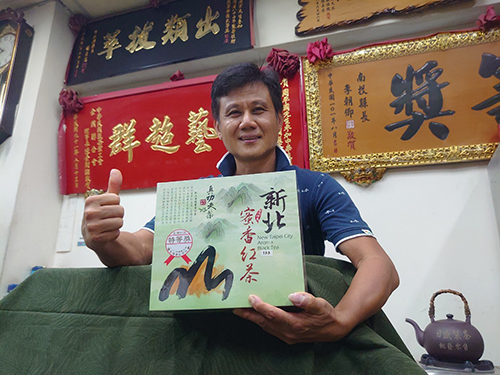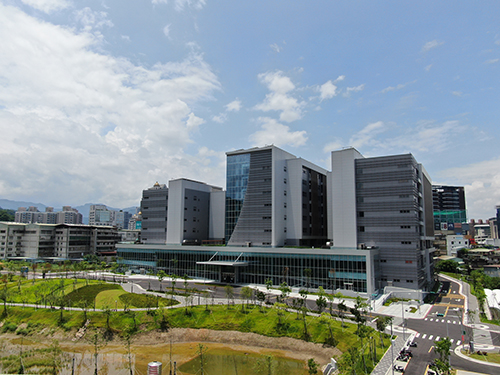In the post-epidemic era, domestic wood from individual products to space to create a sustainable future of pure wood texture.
In the post-epidemic era, domestic wood from individual products to space to create a sustainable future of pure wood texture.
(Taiwan TB News Network / reporter Chen Mingzong) on the 23rd, the Forestry Bureau of the Council of Agriculture held an exchange meeting on "domestic timber in the post-epidemic era", inviting experts in the fields of wood industry, design, and technology, as well as academia and competent authorities, to work together from the perspective of supply, demand, and planning to share with the public, hoping to move towards the sustainable future of plantation management in Taiwan.
Covid-19 will wreak havoc all over the world in 2020, which will bring shock and reflection to the world in all aspects, including the risk of over-reliance on imported resources. Timber that was once a strategic commodity and essential to people's livelihood is a case in point. Apart from the supply of wood and bamboo, there are also multiple benefits such as recycling, reducing the carbon footprint, and promoting industrial development. The sustainable management of Taiwan's plantation, which has been silent for a long time, requires the participation of the whole people.
The Forestry Bureau pointed out that the exchange discussion was conducted by Yao Renkuan, head of the technical group of the National Taiwan Technology Research and Development Center, Zhang Weiguan, head of afforestation production of the Forestry Bureau, and Yang Dexin, a professor of ZTE University. plus representatives of the design community: Xu Jiehao of Chaiwu Co., Ltd., Zhang Zhengkai, Pincon Surveyor And industry representatives, including domestic wood manufacturer Senxin Industry and demonstration site Coffee Hu Shu Chong jointly attended the presentation to explore the current situation of domestic wood and the development of domestic wood in the post-epidemic era from different angles.
During the meeting, the Forestry Bureau formulated development strategies for the revitalization of the plantation industry in terms of resources, technology, laws and regulations, and conducted continuous social communication, with a view to providing a high quality and stable source of materials for operators, designers and consumers. can produce or buy domestic wood products to invigorate the domestic forest product market.
Hu Shu-Chong, a designer of ─ Coffee, a demonstration site of domestic wood, pointed out that the color and taste of Luan Dashan meet the planning needs of the whole space. Domestic wood has changed from a distant forest to a daily space, and from a cold noun to a palpable neighbor.
The Forestry Bureau said that Taiwan, which is surrounded by the sea and has a forest coverage rate of 60.71%, is rich in forest resources and diversified wood and bamboo species. Although productive plantations account for 12%, or more than 290000 hectares, wood and bamboo in Taiwan's daily life depend almost entirely on imports. The sustainable management model of productive plantation, that is, through planned felling and immediate afforestation, just like the production of crops, to provide our daily needs.
This process of afforestation, felling and reafforestation will not only bring better carbon sequestration and maintain forest use of woodland, but also protect natural trees and their ecological environment by meeting market needs. Therefore, in recent years, the Forestry Bureau has actively promoted the diversified application of domestic timber, hoping that the Chinese people will understand and make use of the wood and bamboo wood and all kinds of products produced by Taiwan's plantation, so as to revitalize Taiwan's wood and bamboo industry.
In order to promote the utilization of domestic wood, since 2020, the Forestry Bureau has cooperated with the National Taiwan Technology Research and Development Center to strengthen the scope of application and cultural transmission of domestic wood and bamboo through process design. At the end of 2020, the project launched the exhibition "the Feast of Pincon living ─ from the Forest", showing six designers using Taiwan's diverse wood and bamboo wood to design works that can be integrated into public life. This year, domestic wood has been introduced into the commercial space, which is located on the second floor of Nao Coffee near the North Gate of Taipei City. It has become a "Pincenhuo ─ demonstration site", giving people a chance to get in touch with and learn about domestic wood during their daily consumption.
The Forestry Bureau stressed that the cooperation with the technology center and designers hopes to show the diversity of domestic materials through technology and design, and to extend the spatial creation of local culture and natural products through creativity and the use of different media, so that each work aims at micro-quantitative production, and it is also expected that domestic works using local materials will have the opportunity to enter the international market and give full play to Taiwan's soft power in the future. Export as a high-value design commodity, rather than simply selling raw materials, so that the process of domestic materials reflects "the more international it is in the world".

The second floor of noisy Coffee becomes the second floor of Pincenhuo Coffee and the demonstration site of Pinsenhuo ─ domestic products.
- Prev

The result of Xinbei Mixiang Black Tea Competition announced that Zhou Pingguo, a farmer in Sanxia District, won the championship.
(Taiwan TB News Network / reporter Sun Yaozhang) the result of the 110th New Beihaocha Honey-fragrant Black Tea Competition was announced, and the champion was won by Zhou Pingguo, a farmer in Sanxia District. The Bureau of Agriculture said that Xinbei honey-scented black tea exudes a unique sweet smell of honey, sucking the tender leaves of the tea through the small green leafhopper.
- Next

The second stage of Xindianbao High Intelligence Park is to attract investment to build a high-tech industrial town in Beitai.
(Taiwan TB News Network / reporter Sun Yaozhang) New Taipei City-to create an important town of North Taiwan's high-tech industrial park, the second stage of Xindian Baogao Industrial Park will now accept applications for rent until November 1, 1010. The scope of the rent includes 62 standard units and 4 public.
Related
- A course of planting techniques and methods on how to grow carrots
- How to plant the latest tulips?
- Is it better to pick tea in the morning or in the afternoon? When is the best time for tea to be picked? what is the third or fifth tea?
- Launch Yuanxiao Happy combination Haocha + Tea Yuan healthy Taste
- Penghu Tourism "Fireworks 20 Parade with You"
- 2022 West Lake Happiness holds "Digital Revitalization Voucher" and draws iphone13 and laptop.
- Banqiao Fuzhou social houses are designed to change start-up combined with police elimination to create a safe and livable environment
- The convenient measure of "mechanical weeding" in Xinbei has been abused and the Agriculture Bureau has imposed heavy penalties on the illegal land consolidation.
- Changgeng University Joins Hands with Four Memory Factories to Rescue Memory Talent Shortage
- The list of Taiwan's top 100 MVP managers is listed by the Director-General of the Farmers' Association of Sanxia District.

